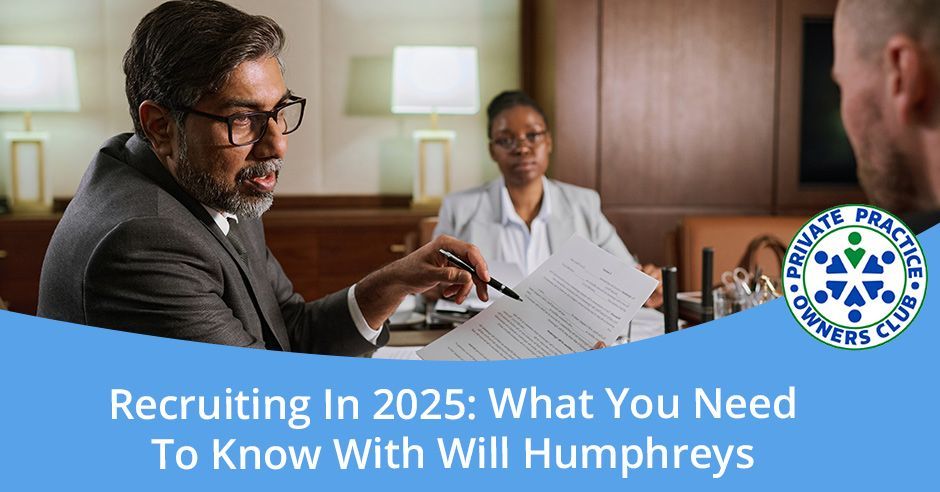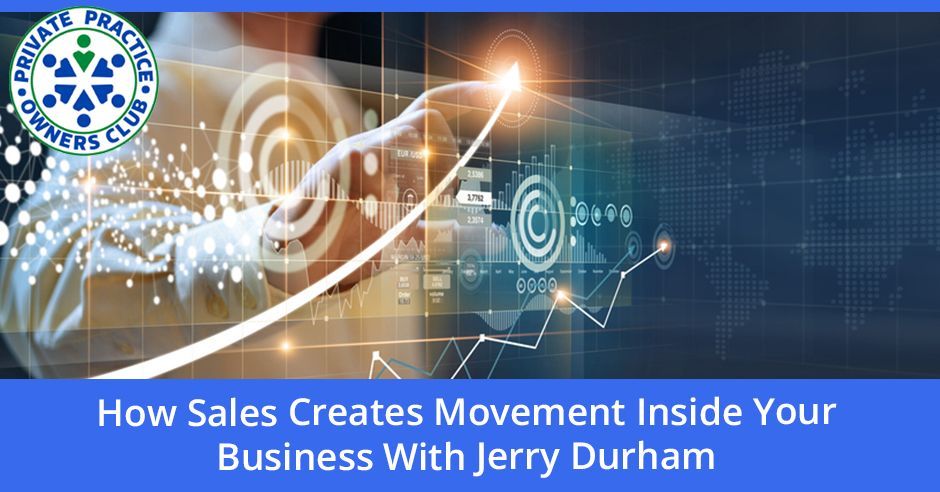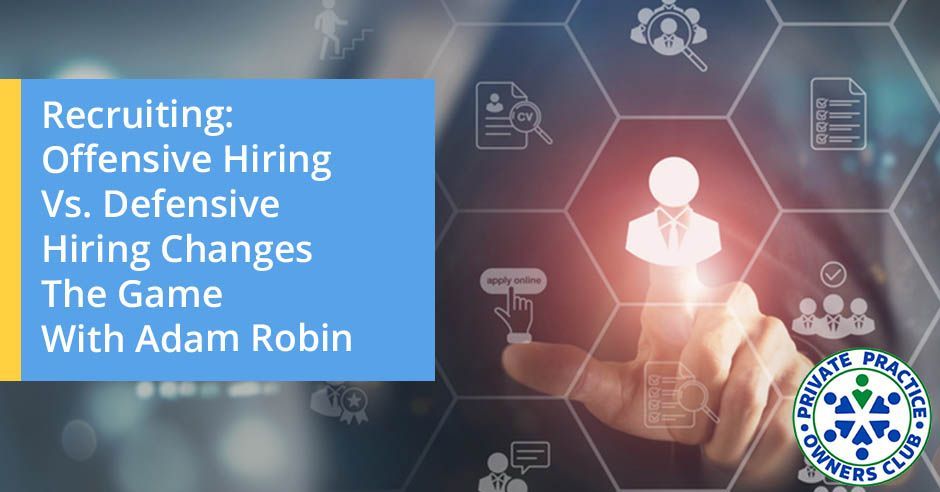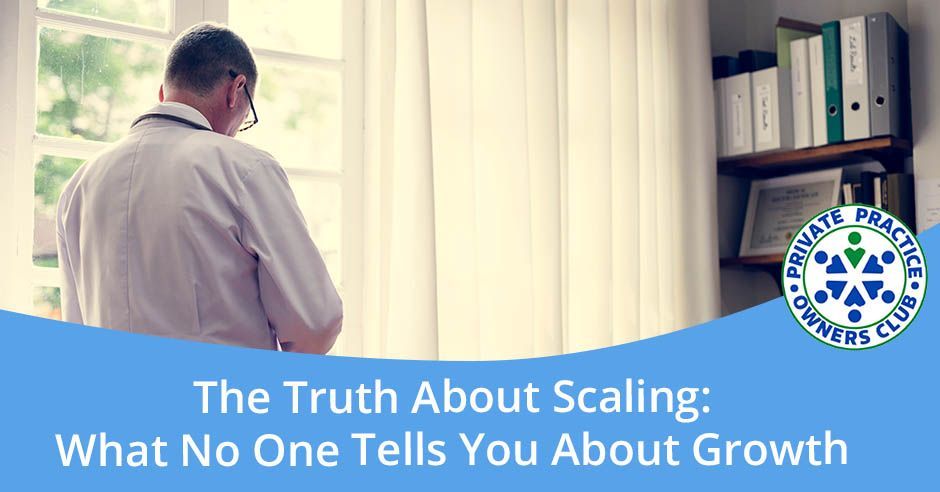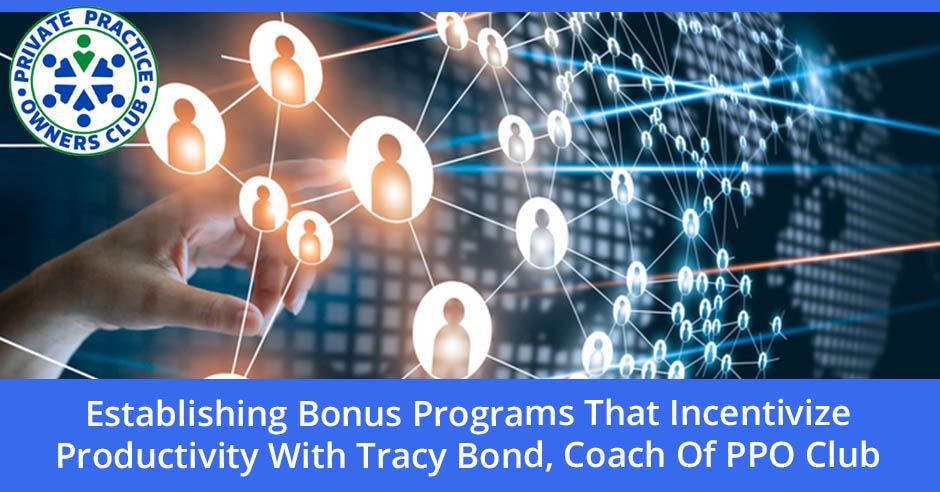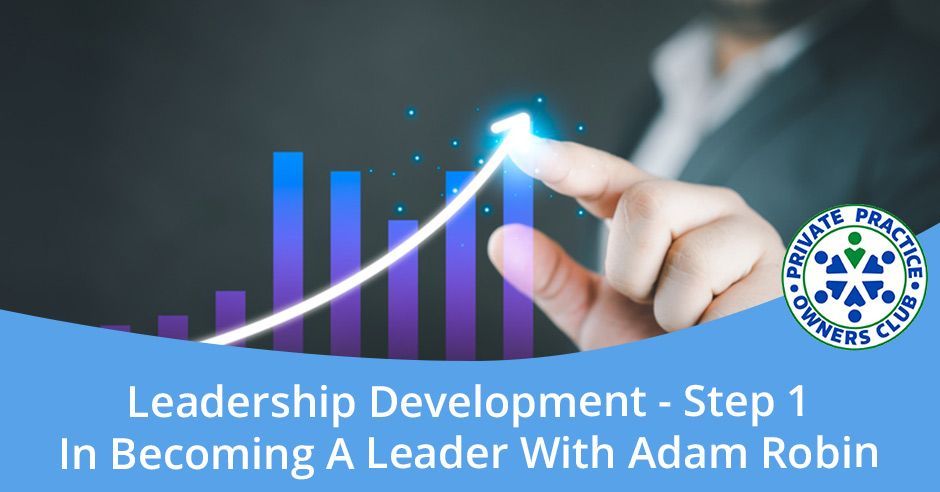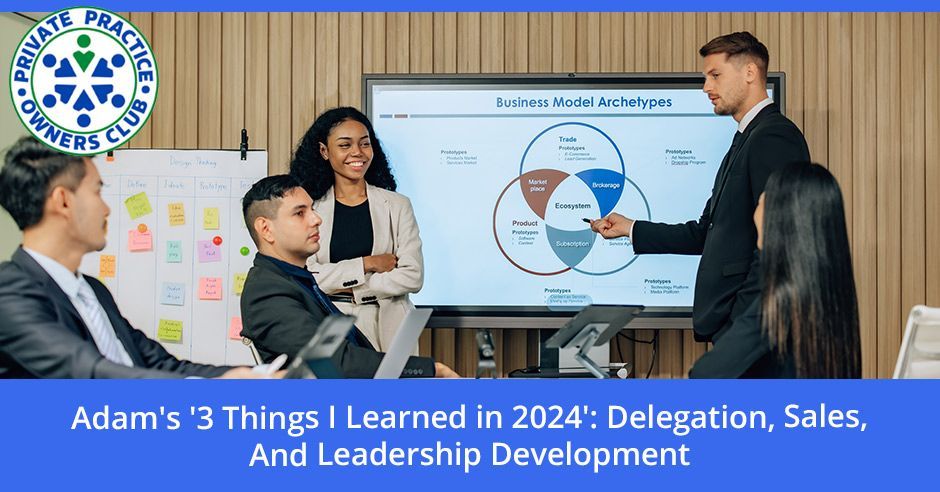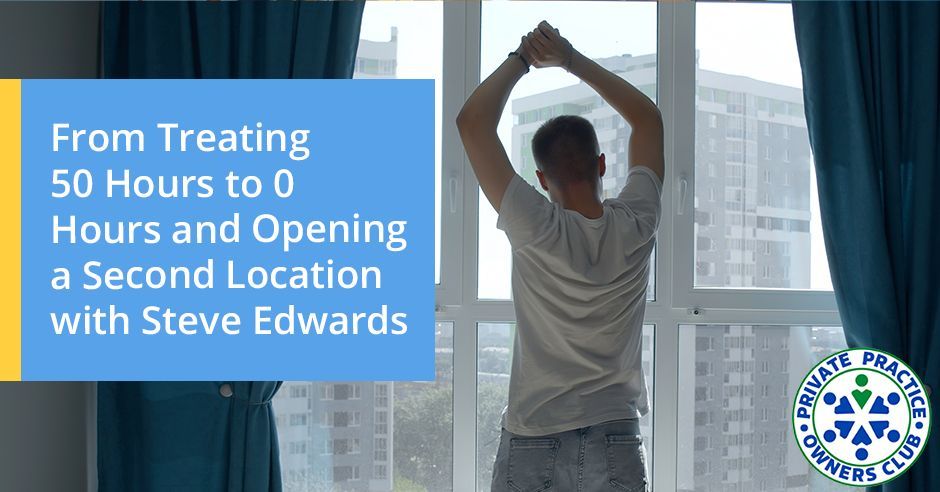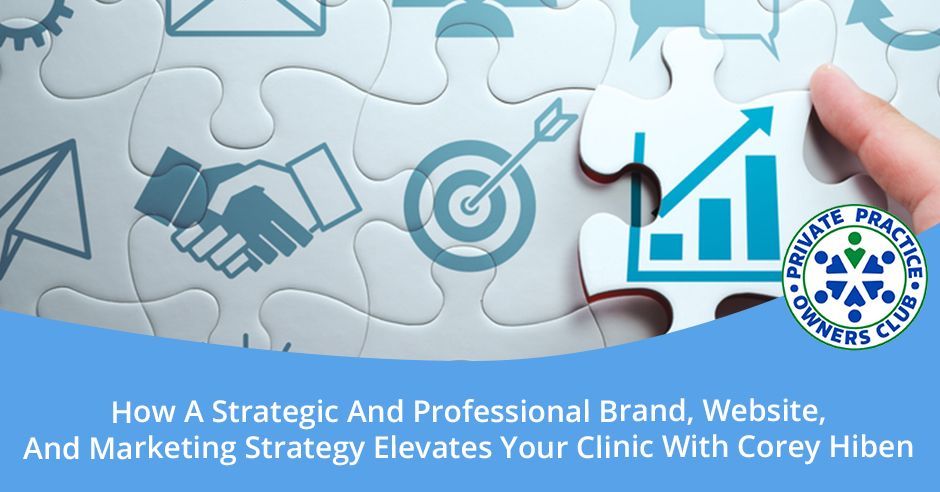Are billing and collections a black hole in your Private Practice? Discover how this tedious process can be a profit-driving machine with Nathan Shields and Will Humphreys.
In this Private Practice Owners Podcast episode, Nathan welcomes Will to discuss the complexity of billing and collections and share strategies to save your Practice money – and sanity. Billing and collections may not be glamorous, but it’s the backbone of your Practice’s financial health.
Episode Highlights
- The Cost of Ignorance
- Learn why a blind eye to billing can lead to financial losses.
- Metrics That Matter
- Discover the key reports every owner must review to keep billing under control.
- The Accelerator Program
- Hear about a unique opportunity for Practices to scale up with tailored billing solutions.
Don't miss this episode of the Private Practice Owners Club Podcast – whether you're a seasoned Private Practice owner or just starting. This episode is packed with actionable advice to boost your revenue and efficiency.
Visit our Linktree for our Coaching Services, Free KPI Dashboard, Facebook Group, and Annual Strategic Planning Services:
https://go.ppoclub.com/linktree-podcasts and learn how to take control of your Practice’s financial future.
Love the show? Subscribe, rate, review, and share!
https://ppoclub.com
---
Listen to the podcast here
Billing & Collections Update - What You Need To Know Now & In The Future With Will Humphreys Of In The Black Billing
In this episode, I’m bringing back my good buddy, Will Humphreys. How are you doing?
I am so much better that I'm back on the show, Nathan. Thanks for having me back.
I hear you were in a depressed state since you hadn't been on the show in a while. Is that what you're saying?
Yes. I'm a middle child so if I don't get attention on a regular basis, I start to introvert. Honestly, I love this show. It's always fun being with you. You've got the greatest audience. It’s awesome.
Thank you. It’s so good to reconnect and see where you're at because you have a lot of things on your plate. We've talked about rockstar recruiters in the past and how you help owners find providers. We've talked about virtual rockstars and your influence and impact in providing virtual assistance to owners of clinics and other businesses. For the longest time, congratulations on your anniversary. In The Black billing and collections for private practice owners as well, you have a lot of stuff on your plate. It's nice to reconnect a little bit.
The Importance Of Billing And Collections In Private Practice
I appreciate that. Without a doubt, I've been very grateful. Once a coach said, “If you can figure out how to run a private practice in the rehab space like PT, OT, or SLP, you can run any other kind of business.” It's funny because I remember hearing that going, “He's just being nice,” but it's true. That's the reason I've been able, like you, to do other things. That foundation of what we learn is a tough market but it makes the best leaders of any business. It's been crazy to see how all these things are connected to what I do. It feels very spread out but to me, it's one thing.
I forgot to mention that you're still working with multiple exits. That takes a lot of time and energy but in this episode, we want to focus on your experience with billing and collections as a representative and as the Founder/Co-owner of In The Black. It's nice to come back around. I don't think we've talked much about billing and collections for a few years, frankly.
Who wants to hear about it? It's extremely boring. If you're still reading to this point, congratulations. You're an incredible leader because you chose something that clearly wasn't a topic you were excited about. No one's like, “I can't wait to learn about medical billing.”
They have to address it. It's the lifeblood and where you get the cashflow. If you're turning a blind eye to billing and collections, then you're working naively and people are probably stealing from you, which is what happened to us.
We've had past billers, and we won't mention their names, come back years later and go, “I'm sorry I did that to you. That must've hurt.”
Have you had people come back and apologize? I haven't.
Both of us did. You don't remember who it was.
I do remember. We did have those that I can recall.
We're having an audience. Thanks for letting us communicate on that. There were so many broken hearts, whether it was an in-house person who falsified documents in one case in my world or an outsourced business that promoted themselves on the back end of a large EMR, no names in particular, that never did the job they were supposed to do. I always felt like I was taken advantage of to some degree.
Stolen the cash.
Ripped off. There are so many ways with the medical billing. I'm glad that people are reading this because to your point, if we don't learn about these things, then we can't ever be in charge of our freedom and profits. It's a core element of how we live.
If we don't learn about these things like billing and collections, then we can't ever be in charge of our freedom and profits.
A lot of owners turn a blind eye to billing and collections thinking, “I'm handing it over to the experts,” whether that's hiring somebody and letting them do their job, which is what we did, and thinking they've got it handled. Number two, they don't know what to look for and how to hold a billing and collections team accountable. They stay ignorant and naive. They don't learn the billing and collections reports, how to read them, how to audit their financials, and how to audit their billing and collections efforts.
It's hard for them to get into that space when they have so many other things going on. Yet, there's so much money to be lost at that point right there, especially if you're missing out on over-the-counter collections at the time of service. It’s if your aged AR is getting out of whack, denials aren't being processed appropriately, and CPT codes or diagnosis codes are getting denied. That information is not getting passed on to the providers.
There are so many ways you can lose money. We've lost them all in different ways. In the past, I never recommended outsourcing billing and collections until you started your billing collections company. You guys did it the right way, which to me means frequent communication and reviewing the reports together with the owner to show them exactly what the metrics should be.
“Here's the baseline expectation you should have,” whether it's for us, as your billing and collections company, or another billing and collections company. These are the standard expectations. You go so far as to communicate. Not only what the metrics are but what you should expect if you guys are below average as to why and here's what the reports are telling us.
I appreciated that because I never experienced that until Katie came on board to our clinics and helped us understand billing and collections and made it significantly better. We took her information of knowledge over to your company, In The Black. You guys do a great job in that regard. Correct me if I'm wrong but we're seeing a couple of other billing and collections agencies that are doing a pretty good job because I know you know who those players are. They seem to be doing better if I'm not mistaken.
A state of the union of where medical billing is as an industry is that it's important to have good billing companies to outsource because it is such a difficult part of our business. For years, I didn't even know what a profit and loss statement was. I then have a handful of multimillion-dollar companies. I remember the shame of not knowing my numbers or understanding the process but feeling like I should have.
I’m talking to billers and companies like I know what I'm talking about but had no clue until Katie came in. The industry and market are changing. I'd like to think that In The Black had some influence on that to some degree. One of my favorite things that Katie told me back in the day is she's like, “When we grow, we're going to screw up. Let's do this. Let's guarantee what we do. If we ever make a mistake that costs the PT or owners money, let's guarantee it to where we'll pay them out of pocket.”
This is how transparency is a big value for me. We had one client who we screwed up badly, Nathan. We lost them over $20,000 because we were growing so fast. We paid them $20,000 and even borrowed some money to make sure they got that money and were made whole. If you're running people's money, why wouldn't you guarantee it?
We started doing those things and those types of things had never been done before. I'm proud of Katie and her team. I believe some of those things are starting to bubble up in other companies as they grow and function. At the end of the day, medical billing is so so complicated. It is so much harder than I even realized as I got into it with these medical billers. It's so needlessly and getting worse. With the state of the union from the other side, the payer side, their goal is to try to make it more complicated on a day-to-day basis.
It's insane what these companies and people have to figure out. I agree. Back in the day, I wouldn't recommend outsourcing it. I still believe there's a good place for an in-house biller. There are great situations. If you've already figured that out, great. Good for you. You started another business that's ultimately saving you money. At the end of the day, for anyone else, having an option to outsource it is phenomenal. I'm glad to say that there are more companies bubbling up that I believe in.
The Benefits Of Outsourcing Billing And Collections
This is where I'm coming from when it comes to bringing someone in-house, hiring that billing and collections person versus outsourcing it. You tell me if you're feeling the same way. You have some bias but you're also able to step back and see from a greater perspective. Anyone who's newly opened their doors doesn't bother trying to find somebody. Hand it over to the experts that you can trust, especially people like you who are willing to communicate. The worst billing and collections companies are the ones that simply send over the reports on a monthly basis and have little to no communication with you.
That's exactly what you do not do. You guys talk to the owners through the process and the reports on a regular basis. For anyone who's opening a clinic, don't bother. Head it over to a good billing and collections expert who will train you on the reports, what the numbers should look like, what they do look like, where the issues are that they see, and what they're doing about it, instead of trying to put all your trust and find that needle in a haystack that's going to be the perfect biller for your company at that time. Is that where you're at? Once you get to a certain point where you have multiple clinics, then it's probably worth your time to bring in a billing and collections team.
I do believe that not one size fits all. There might be situations based on people's backgrounds. We have a couple of clients who work with us who probably could have hired someone and brought them in-house when they opened their practice. Each of them was a director for a large company that taught them well. You know what I'm talking about. These guys were also smart and thought, “We don't want to deal with it.” It's a different thing.
There’s so much energy.
Some people are more naturally inclined. People who are naturally inclined, no matter where they are, should bring an in-house bill or in. Here's the problem though for people who are starting. I learned this. It takes more work to bring someone on who's never seen a patient before. It's bizarre. You would think it'd be $5 million times more work but it's not because you're helping someone get set up.
Here's the problem. People who are starting, a lot of times, don't meet the minimum threshold to qualify as a potential client. At least a lot of the bigger companies that I've worked with used to send me referrals for people, all the ones they didn't want. I had someone slip and tell me they were called trash referrals. It’s the PTs, OTs, or whoever was starting their practices, the ones who were under $100,000 a year, even if they'd been in business for a while. If they were starting out or under $100,000, the threshold is higher than that. You have to be making more than $300,000 for them to look at you in some cases.
If you're in that smaller group, it's a lot of effort to bring them on. They're oftentimes not even being addressed. You get these owners coming out, not knowing what to do, thinking they should find someone for 4%. Who's going to charge only 4% or 5% when they realize what they need is a high-quality company that's going to take on that investment and maybe charge for the first few years a little bit more? It doesn't matter. You're not making much anyway to get you on top of it. As you scale, then you can look at other options and even negotiate down your costs or bring someone in-house to get to that size.
What is that range that they should expect to pay? Is it 7%, 8%, or 10%?
If you're starting, you should be leery of anyone charging you 6% or less. If you are established, you're $500,000 in revenue and above, industry norms are anywhere between 5.5% and 8.5%. I've seen that across the different companies that are out there. The biggest thing is how they deliver on their promise. PTs go to a billing company and say, “They're charging me 4%. Why don't you charge me less?” It's like going to a physical therapist and saying, “I've tried physical therapy before.”
There's such a dramatic difference between medical billing companies in terms of what they offer. Do they do insurance verification? Do they provide a credentialing? What does their communication look like? Do they offer a guarantee? Is there coaching baked in? There are all these combinations of things. It is hard to answer the question of what percentage but if you're a new company and you're starting, the differential in your income between 5% and 7.5% is very minimal compared to the quality of the company. You should be looking at the quality of the company. If you're going to guarantee that you're going to collect what you should get, that to me would be worth 1 point or 2.
You should be looking at the quality of the company if you're going to guarantee you're going to collect what you should get.
Let's extrapolate that. If they're at $200,000 a year in revenue, 2.5% is $5,000. Am I right?
Yes.
If that means a greater experience, more education, and people who are willing to stay on top of your billing and not just do the bare minimum, that's more than worth it. That's what you're saying. That $5,000 gets paid back big time. That number changes as they get bigger. Once they hit $1 million in gross revenue, that percentage makes a different deal. In that same analogy, we're looking at five times that amount. We're talking about $25,000 of annual difference.
You start looking at that percentage but for people who are smaller and starting, they need to look at high quality and not worry as much about that percentage as long as the company can deliver on their promises. That stays consistent no matter how big the company is but at the end of the day, the bigger challenge is having someone take you on. I'd be leery of someone who's taking a new client on for 4%. I almost guarantee they're going to have a horrible experience and lose their shirt.
I remember back in the day when we first tried to outsource, what turned us away was that outsourced billing company. Their customer service interactions were horrific. They were not aligned with our values as a company when it came to customer service relations and collections. One thing that we didn't mention is what's the customer service relationship going to be like for your patients. Going on the cheap side of things on collections, are you paying a little bit more to save that relationship with your patients? Frankly, the last interaction your patients are going to have more than likely with your company is the financial balance payment. If that's not a good experience, no matter how good your therapy was, they can turn everything negative.
Anyone who's been successful in physical therapy knows that. They understand the power of being able to provide customer service around the financial pieces. That’s another area that is getting better across the board. With the major players in the medical billing game, we didn't take a client on for a year and a half. We just started taking clients on again. The reason we stopped taking clients was because we did grow so aggressively that we thought, “We don't want to lose our quality.”
We saw that with so many other bigger names in our industry. People were coming to us saying they were great at first and then the customer service went out the window. Customer service is always the greatest indicator if a company is going to be a long-term fit or not. The second you lose that customer service, that means they've evolved in a way you probably got to get ahead of. Either you need to be more aggressive in getting them on the phone because the squeaky wheel does get the grease in a medical billing company or you need to start looking at other options.
Trends And Updates In The Billing Collections Industry
What are you experiencing in the billing and collections industry? What's changed? It's been a few years since we've talked about the billing and collections experience. What are some of the things that you're noticing that are changing? What are some of the trends that you're seeing that we're going towards?
I've seen a couple of things. The first thing that is obvious to everybody is AI or Artificial Intelligence. That trend is something I've had on my annual strategic plan for five years. Keep an eye out for AI. It came like a bull in a China shop. You should be asking your billing company, “What do you guys use in terms of AI?” If they say ChatGPT, they are losing you money compared to other companies that are leveraging AI tools.
It's crazy because insurance companies are using artificial intelligence to make the process harder to get reimbursed. You've got to fight fire with fire. At this stage, the billing companies are winning the game. I'm seeing people get reimbursement. No kidding. With the DSO or Dates of Service Outstanding, the time it takes for you to get paid from the day that a patient walks in the door, the industry standard is 60 days but I'm seeing 20. I'm seeing crazy quick turnarounds for companies that are leveraging AI.
The AI component is a game changer. I used to think of any medical billing company that used to outsource overseas as a bad thing. What I'm learning is if a medical billing company is using another company overseas to leverage overseas help, that's usually the kiss of death. If they're using their virtual assistants, they're training them and they're employees of the company, that's an indicator of a company that's able to provide better value.
AI is the biggest thing. The virtual assistant thing is another because as you know, it was my billing company that got me started doing virtual assistance for PT owners and OT owners. I was doing it for my company. It was going so well. People are like, “Help me.” I was like, “No, I'm too busy.” They said, “Please, we'll pay you.” I went, “What?” We have 115 virtual assistants over 76 clients across the country.
Don't look at their overseas billers as the red flag like it used to be. It's all about the relationship. First of all, are they talented? It doesn't matter where they live. Do they have a good relationship with you? If they do, then that's what matters. Americans, honestly, in some cases in the medical billing space are some of the hardest people I've had to hire and train. We have a great American team, no question, but they are diamonds in the rough. Those are the two bigger transit that they should be asking their companies about and learning about. I don't know how someone who has in-house billing learns how to leverage AI the way that these larger companies are bringing it. That's why outsourcing is going to ultimately reign supreme.
Let's be generous. How can you expect your 35 to 65-year-old biller to stay on top of all the AI technology that they need to understand? What the billing companies frankly are doing, as you explained it, is gaming the system. As you gain the system by leveraging AI, you can get faster turnarounds. AI is learning the denial rates and what CPT codes and diagnosis codes are getting denied so that they make recommended changes to the billing and diagnosis codes to get greater reimbursement in a faster period. If you're leaning on that person who did their billing and coding course years ago to handle all that's coming down the pipe in real time, you're behind the curve.
The companies are coming into our industry. Some of them are getting heat because they weren't born in the physical therapy industry but they're coming into the PT industry from revenue cycle management, which is the more professional term for a medical billing company. They're coming in from revenue cycle management from other healthcare industries going, “Physical therapy isn't a $36 billion PT industry.”
PT, OTs, and SLPs make up a $600 billion musculoskeletal industry in the PT and OT space, at least. For them, they're trying to capitalize on our niche. It's a validating thing for PT and OT owners who are like, “Should I stay in this?” Absolutely. Look at these large companies who have huge books of business who are like, “No, let's go target PT. OT, let's go get those guys because they know where we're going or what we could at least go to.”
I'm out there on the runway with the flags when you say that. “Please, come this way. We are so many decades behind.” I welcome the fact that you're outside of our industry because we are so slow and we are so not technologically savvy that we need someone to come in and change things up.
You and I used to have PTs that we'd have to show them how to log into their emails. That was not that long ago.
The Impact Of AI To Billing And Collections
What we're talking about is the equivalent of going from paper notes to EMR. I feel the same way about the scribe components that are part of EMR. It's time to stop typing your notes and use the AI scribe. It's time to leverage AI for billing. That's the transition that's happening. There's going to be early adopters and those guys are going to push it. It's going to take time for everyone else to tell the line and feel like, “That's doing that well for you. I never thought it could.” You're five years late. That's what we're going through.
I feel like we're the Danish. We're in for the Americans to liberate us during World War II. It feels like that in the sense that we're all like, “Welcome. Thank you. Yay. We love hamburgers.” It's one of those things where we need this as a disruptive tool in our industry. Has it ever occurred to anyone reading the facts about the insurance companies? What did UnitedHealthcare make in 2023?
They made $20 to $30 billion in profit.
What kind of data do they have on our industry? They want to keep you so suppressed and reimbursed as little as possible because they know the truth. If we were like the movie Antz, we all came together, fought it together, and started charging what we were worth, we would save our patients billions of dollars. We would make significantly more but the biggest people who would lose would be the insurance companies.
We always think of ourselves as we're a service that gets referred out to but PT and OT owners don't know that we are the single greatest threat in the healthcare industry of taking down the insurance companies. If something happens to me, I want it to be known. It’s no big deal. AI is a weapon for us. We have this weapon to help you get free. In the short term, it increases your profit, income, and freedom. Are you even using it? Asked them. Send out a note. “Do you guys use AI? What type of tools do you guys use? How does that look?”
There are companies that are leveraging it more than I who work with larger clients. We're the opposite at In The Black. We don't work with people above a certain size because we know that's above our ability to deliver the value they deserve. We refer out to those clients. They have tools for larger clients that we don't need and use. It's interesting to see how AI isn't like a cool thing but if you're not using it, where are you? What are you doing? They have all these other tools that are coming in like scribes and stuff to help offload the other stuff.
Also, compliance. It's a matter of time before there's going to be some component out there. Maybe it's part of our EMR systems and maybe it's a separate thing where it's going to be able to scan your treatment protocols, plan of care, and interventions, and compare that against the most recent data out there. Studies show the most effective interventions for that diagnosis code and presentation of a patient at that age and demographic. It's a matter of time before AI starts helping us improve our ability to intervene appropriately. People who are slow adopters are going to be slow. It's how it is.
Big reps. They'll be listening to a different podcast on how to flip houses. I don't know.
The insurance companies are going to take that same AI data on optimal treatment and compare that to what you're doing and possibly start denying if you're not doing the most optimal treatment. That's how far it could go. I'm not saying it will but those are possibilities in that way. We can see how AI is infiltrating a lot of organizations. It already has been a part of the insurance companies. We just need to leverage it as well.
Here's how AI is used. People are like, “How does it make a difference?” This is how it works. You have a patient who has a certain insurance. You submit the claim and it gets rejected. You're an American biller or overseas. They take that claim and find out why it was rejected. There's a percentage of those rejections that come through that are ridiculous. In some cases, we will send the same claim exactly twelve hours later because we know every 100% of those claims are going to get rejected based on that we forgot information that we didn't forget. Think about that. We already know it. That's part of how we play this unbelievable game.
Do you say that 33% of claims get denied for whatever reason?
The number is close to 30%. Did you pull that out of your head?
I'm smart. I’m kidding. I just assume. I heard that one time. It's standard. They're going to deny 30% of all claims, no matter if they're appropriate or not.
You have to know that game if you're a billing company. That's why when PT or OT owners get upset and they call their billing company, you're like, “What's going on here?” It’s like, “How do I sit down and explain all this to them?” It's easier for them to be like, “Look at your percentage of collections.” It's easier for them to not communicate because communication opens doors of confusion for owners. As a medical billing company, you feel like you're wasting a lot of time calming them down. Other companies are going to screw them. You're wasting that time educating them when you could be spending that time getting that money.
There is a balance I've learned between those two. You have to communicate with your owners and get them the information they need. There's a certain anxiety level of people that I won't bring on anymore. I've got people who legitimately will email every time their collections dropped by a very marginal percentage for any small length of period. It's like, “We don't have time to run your account if we're calming you down constantly.”
Going back to the AI example, 30% get rejected because of this and then you get denials. “We're not doing it.” You have to fight those denials. Here's how AI works. It’s the AI programs that I've seen that I like. They know you can teach the program, “If this then that.” When this occurs, this is the immediate follow-up and it's automated. It's not a human being getting to it and leaving notes. It happens in real time instantly. That's why it's so much faster.
It doesn't take all the human element out. The humans still need to program the AI interface to say, “This insurance rejected or denied the claim based on this reason. When that happens, I want you to do this and this.” It takes that first rejection or denial. It takes some effort by the human being to program that into the AI but once it's done, then the AI handles it until the next new reason occurs, which is what the insurance company's AI is constantly creating. They figured out how to solve this. How evil is this?
Skynet versus Skynet.
It's not even hidden. It's if Skynet versus Skynet, we're playing tennis against each other in the open all watching it. In this world, you can't make a statement without irritating half of the country based on their political stance but you can say insurance companies are evil and everyone goes, “That's right.” You can say this heavy comment and people go, “Yeah, totally.” Do I believe the human beings in it are bad? No, there are a lot of disillusioned human beings who think that insurance companies are doing something valuable to their communities, which they're not.
It's about them not wanting to pay. When you own a medical billing company, it's beyond shocking how blatant it is that they're like, “No, you never sent that over.” I'm like, “You do that 100% of the time. Clearly, you're lying.” AI is helping combat that. You need human beings who are constantly updating the AI interface to change the rules and regulations. As long as you have those two things working in tandem, then they can stay on top of the insurance billing and even do better than we've ever done before.
I don't know all the players in that AI space. One of our sponsors was
Athelas
at the conference. They're a sponsor of ours here for 2025. I had a Facebook Live with them and it was amazing some of the stuff that they're doing. They're not done. It's not like they've figured it all out. There's more for them to do.
They even took part in my presentation that I gave in September 2024 in Clearwater so that they could assess it and see how they could implement it into their AI to do exactly what we're talking about. It’s like, “You have to build these diagnosis codes and only use these CPT codes.” They want to automate that. That's the way that they're going. It's going to make things so much simpler. I'm not ashamed to say that Athelas is out there to do a lot of this work. They've got a lot of power behind them.
That's who I refer to. If someone comes to me that's above our size, we refer them to Athelas. We've sent over twenty companies over there. Every single one of them has reported it's been a positive experience in a way. We talk about referrals and stuff like that. There’s a company that's coming and I've been referring to them a little bit throughout this deal. They're phenomenal. I am a big believer in what they're doing in our industry.
I was happy to get them on as a sponsor because they're doing great things and they have a great potential to make some positive changes in the industry. You're also talking about a special promotion that you want to put out to the audience. What do you want to share with us?
The In The Black Accelerator Program
We're excited to announce that we've launched what's called The Accelerator Program In The Black. The Accelerator Program is meant for those companies that are smaller. We understand that they're not very profitable for a medical billing company. The reason we're doing it is solely because my partner Katie Archibald’s dream, before we started In The Black, was to help people start or scale their companies to $1 million. We started In The Black with that in mind. We haven't taken new clients for a year and a half because of all the things we talked about. What she realized that she's good at is helping people get to that $1 million.
This isn't for most of the people reading. It's for ten companies in total that make less than $800,000 a year. If you're making more than $800,000, thank you for reading. If you know anyone, pass it along but ultimately, we have a base book of business that we've built over five years. We aren't able to bring on bigger people at this point. We have to figure some things out from a leadership perspective to guarantee the results.
We pay people money literally if we ever screw up an account. That $20,000 was the only time that's happened. We've had a handful of $1,000 to $2,000 over the years when we've made some bad hires. I'm proud of that. We have never lost a single penny of our clients' money ever. The reason I know that is because we've paid it out of our pockets when that's happened. It's not that it hasn't happened.
What do you think that does anything to our team when they see us paying money out of our company? It changes them. They're like, “No way am I going to.” People getting fired is what happens. What happens to the team is people leave but the idea is that we want to help ten companies over 2025. We want to make these strategic partnerships and help them over that first year.
After that year, if they want to go to like Athelas, great. We'll bring on a couple more people to replace them. We have zero intention of using this accelerator program to get bigger within the market. Why? I'll tell you. We're at a level of profitability and success that is good for my partner, Katie. I'm focused on virtual rockstar, which is the virtual assistant side that's growing well. It's one of those things where she's happy where she is. She doesn't want to be bigger than she is. Every year, we're always going to have 10 clients and only 10 clients.
Once we have that, we're not accepting anyone else. That's not a sales pitch. That's the truth. Once those people graduate to that million-dollar mark, then we're going to bring in some more people. If you are reading and this is you, get over here. The core team that we have is the best of the best human billers you'll ever face that leverage AI within their scale. Our clients, guaranteed, are going to have the most mind-blowing experience.
It's not even a question because it's her and I know the ten employees that we have. They are Mega rock stars that I've worked with in most cases for five years. They will be the ones overseeing your account, teaching you about billing, and helping you scale your practice to get to that millionaire level. If you're feeling this or you know someone in this, please send that over. We have a very generous bonus that we would give you if you refer somebody over there.
How do they find you?
You can go to
Will@InTheBlackBilling.com. Send me an email and say, “I'm interested.” Honestly, it won't be a sales call. The first thing I'm going to do is send you an application. This is not for 95% of your audience. It's a very small niche. For those, we're going to send an application out. Don't be offended if we don't get a call right away. We've already been in the vetting process of refining it. We'll get on a call where we'll teach you all about all the costs and everything.
The Profitability Breakthrough Audit
A few years ago, you were still willing to do some billing audits. Are you still offering that? Is that a resource?
That's a free service we do all the time. I'm not just doing them anymore.
Your company will. You're not.
It's called a Profitability Breakthrough Audit. If you're like, “Will, I don't know.” I don't care how big you are. If you're bigger than what we can take on, we'll still do a profitability audit for you because it serves people. We will make recommendations to other companies. Yes, I'll be very transparent. We will accept referral fees from those bigger companies so that we do make something on it. If you come over and you're like, “We have an in-house bill. We’re not sure.” I've done so many of those where I’ve gone, “You've got a good solution.”
That's not the majority of the time.
It's to prove a point. It's not just a technique. I don't care. I have zero desire to bring on billing clients and trick them into coming if it's a fit or not. If they're doing well, I love giving that reassurance. If they're doing fine, maybe you could train them on X, Y, and Z. I can give them some resources for people they can hire. If they're unsure and scared, I don't care how big the company is. My team are experts who have worked in massive companies historically. We just don't want to take on large clients. For $10 million level and above, we can assess it but we're never going to want to bring that business up.
That's a huge value that I don't want people to overlook. How many decades plus when we went assuming that our billers were doing well? We never could find someone to give us a true audit of our financials and billing and collections service. To provide that and look over someone's billing and collections reports is a huge service to find out, “This is where you're missing. This is where you're billing and collections person is missing the boat,” or, “They're doing pretty well. Change these things.” I remember you saying back in the day that more often than not, you were finding opportunities to increase revenue up to 10% or more simply by making some recommendations.
It's scary. Even when people have kept their existing billers or company, it's rare that we don't find a 10% differential. When you find it, it's gaping because you can get that money. It's sitting in there. It's already been earned. The work has been done. You just have to know how to get it. That's so annoying for me as a previous owner. I feel like I'm constantly trying to do therapy for my younger self in those therapy days by helping them. I won't think about the millions that you and I lost over the years.
That service alone has an infinite return. You pay nothing and get another $10,000 or $20,000 by implementing a couple of changes and infinite returns. Where do you find that?
The funny thing is I used to do those audits and then I'd have to go get Katie. Katie would tell me what to say back on certain elements. I'm not a billing expert. I'm an expert in overseeing a billing company because I know what metrics to measure. I've learned it after a few years and after many years of being in private practice, I get it.
The people who'd be doing the audits are these people who've been doing it for decades. These are people who will come in and show you around every corner under all the rugs. Is that a penny or is that a pound that you're missing? For anyone curious, please reach out to
Will@InTheBlackBilling.com. Don't be offended if I immediately do an email intro to Heather, Shelly, or any of these amazing leaders who can help you.
Is there anything else you want to share?
I love Nathan Shields and this show. If you have any sort of intelligence, you need to go to Nathan's next event, which is TBD. I've seen Nathan speak on stage. I know what he's doing over there with the great Adam Robin. Nathan, I can't wait to hear more about your event. I'd love to have you on my show, which I'm promoting.
We can't go without promoting yours because you have the
Will Power Podcast. You're not doing enough already. You're showing us all up by doing these things.
I'm trying to be like Nathan Shields. I'm excited because we'll do some collaborative stuff about your upcoming events and stuff. Those episodes we’ll have on both channels so you can stick to this network for sure. I'm grateful for you. What you're doing is phenomenal. If you want some major benefit and value, go to Nathan's next event.
Thank you so much for sharing. I appreciate it.
Thank you, my friend. It’s great to see you.
Thanks for having us over for tea and crumbs.
Thanks for having us over. It's good to be here.
Thanks. We'll talk to you later.








